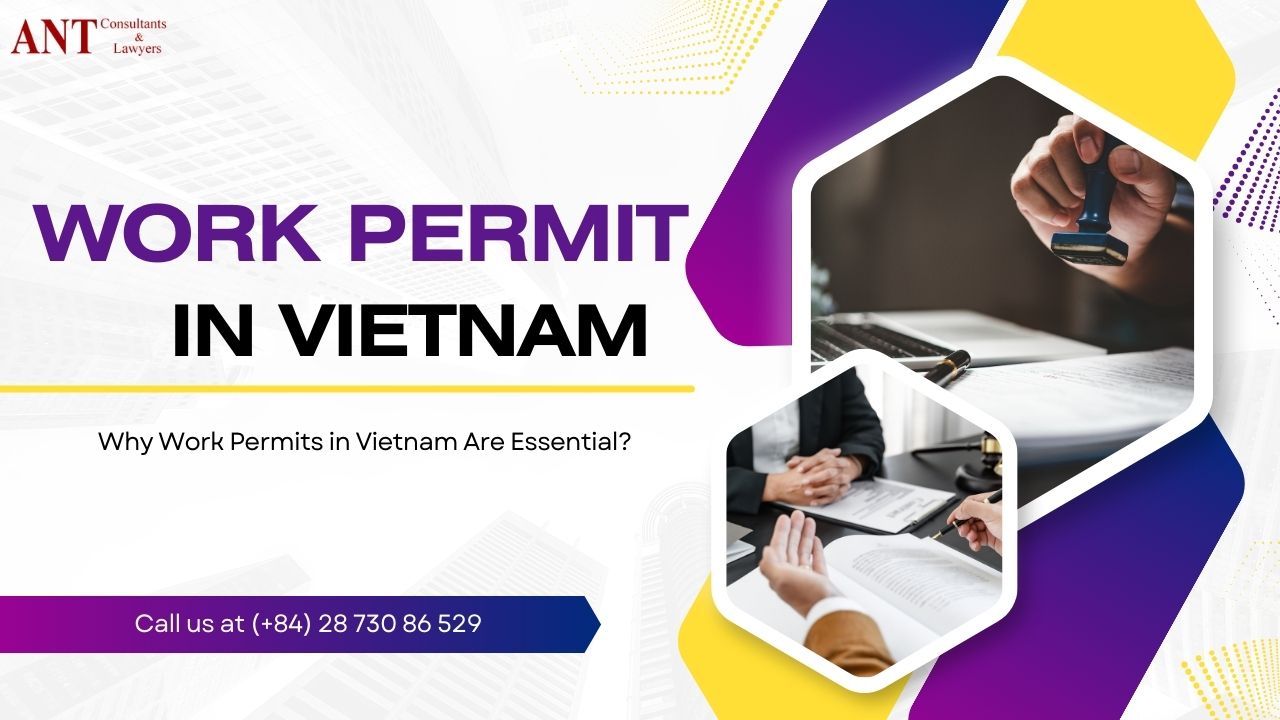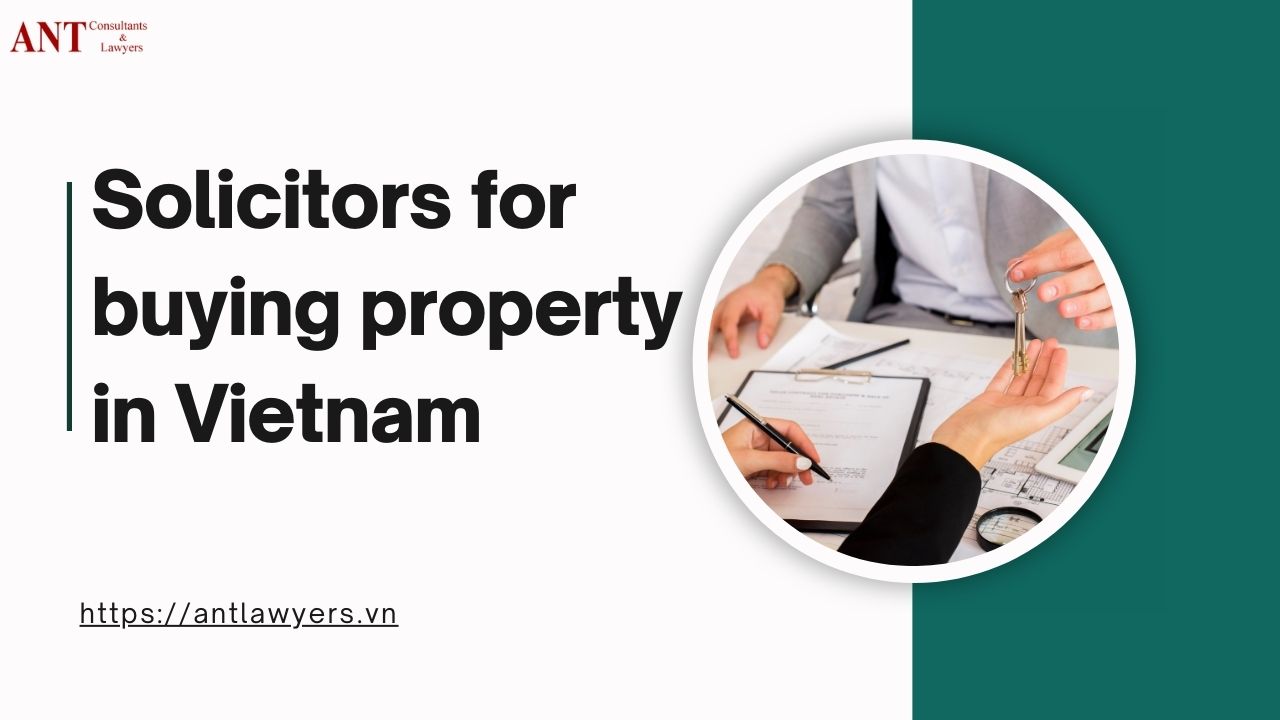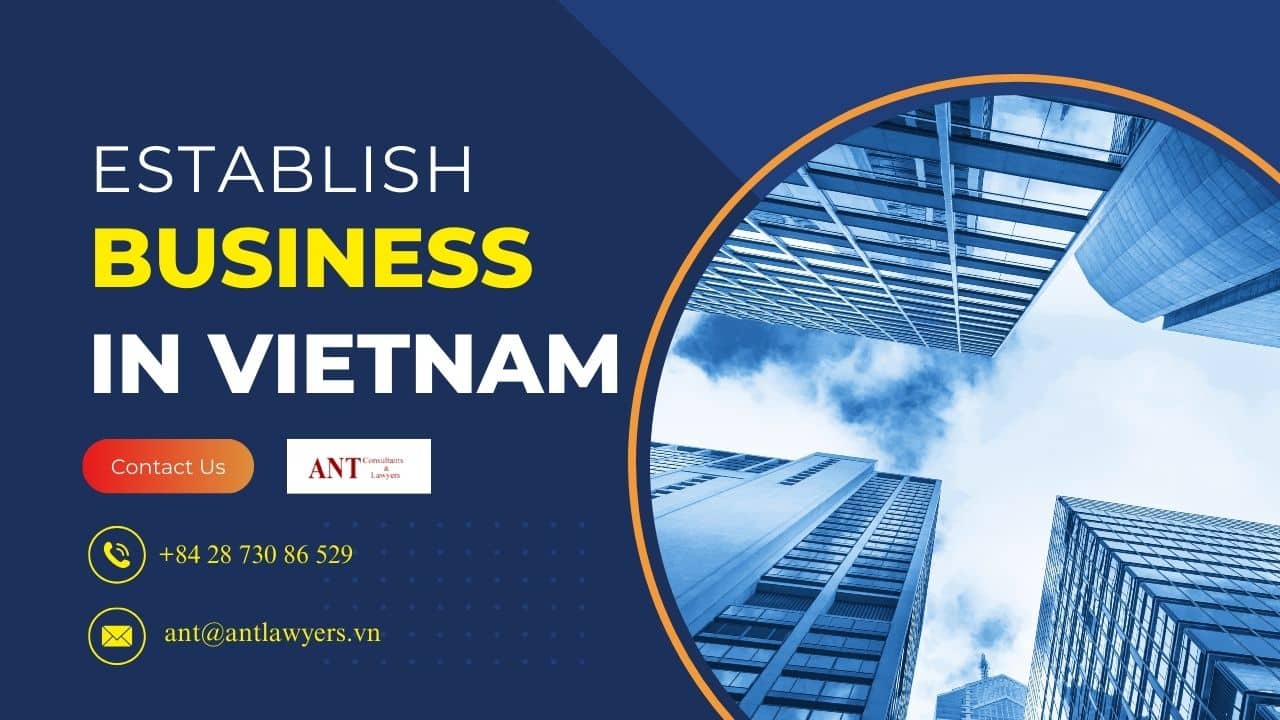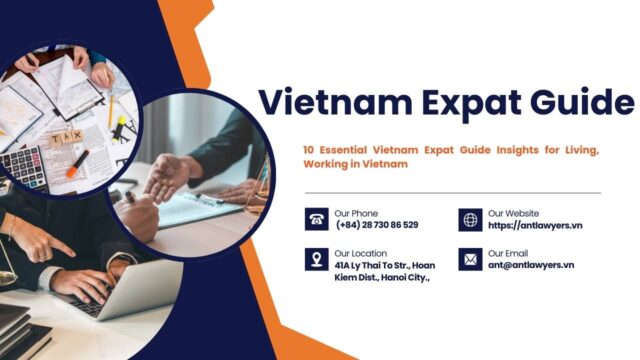Moving to Vietnam might be an interesting experience. But before you get too comfortable, there’s something crucial you need to tackle: understanding Vietnam’s legal and regulatory landscape through learning Vietnam expat guide.
If you’re planning to live and work in Vietnam, you need to navigate a maze of rules, from visas and work permits to property laws and taxes. Messing up even a small step can lead to frustrating delays, unexpected fines, or even deportation.
But overall, culture matters most. Be patient and be adaptive.
Our experienced lawyers in Vietnam have assisted many expats make a smooth transition. In this Vietnam expat guide, we will explain how of every key regulatory matter, offering clear problem statements and practical solutions to ensure your move is as smooth as possible.
Understanding the Vietnamese Legal Landscape for Expats in Vietnam Expat Guide
1. Who Is Affected by Vietnam’s Regulatory Environment?
Vietnam’s regulatory framework affects every expat planning to relocate, whether you are a professional, an investor, a tourist, or a retiree. The laws influence every facet of daily life: from securing a work visa and obtaining a residence permit, to buying property or setting up a business. Vietnamese law is designed to protect both the local and foreign interests, but its nuances can be daunting without proper legal guidance.
2. What Does the Vietnamese Legal System Entail?
The legal system in Vietnam is a civil law system. This means that while codified laws and regulations exist, interpretations and administrative practices can vary by region and are subject to periodic reforms. Expats need to understand that laws relating to immigration, labor, property, and investment are interlinked and may require professional legal advice for successful navigation.
3. Where Do These Regulations Apply?
All regulatory measures apply across Vietnam, but key differences can emerge between major urban cities and provinces. The regional variations in enforcement and administrative procedures mean that local legal counsel and region-specific research are invaluable.
4. When Do These Legal Requirements Impact You?
The legal implications begin from the moment you decide to move. Visa applications, work permits, property leases or purchases, and business registrations must all be initiated well before you set foot in Vietnam. Continuous compliance with evolving regulations remains crucial throughout your stay, making it important to stay updated on legislative changes.
5. Why Is Understanding the Regulatory Environment Crucial?
Non-compliance with local laws can result in fines, delays, or even deportation. Understanding these legal nuances is not just about following the rules, it’s about securing your rights, ensuring financial security, and building a stable life in Vietnam. As an experienced legal team, we emphasize that a well-informed expat is better positioned to avoid pitfalls and capitalize on opportunities.
6. How Can You Navigate This Complex System?
Armed with the right knowledge and professional support, you can confidently navigate the regulatory maze. This Vietnam expat guide will detail practical steps, from visa applications and work permits to property transactions and business registration, to ensure you’re not caught off-guard by unexpected legal hurdles.
Vietnam Expat Guide on Immigration and Visa Regulations
1. Who Needs to Understand Immigration Laws?
Every foreigner who wishes to live, work, or study in Vietnam must have a thorough understanding of the country’s immigration laws. Whether you are a skilled professional, a retiree seeking a warmer climate, or an entrepreneur exploring new markets, your journey begins with securing the appropriate visa.
2. What Are the Key Visa Types for Expats?
Vietnam offers several visa categories designed for different purposes. The most common ones include:
– Tourist Visa: Suitable for short visits or initial exploratory trips.
– Business Visa: For expats who intend to explore business opportunities or attend meetings.
– Work Visa: Issued to professionals who have secured employment in Vietnam.
– Investor Visa: Tailored for those investing in local businesses or property.
– Student Visa: For those enrolled in educational institutions.
Each visa type has distinct requirements and durations, and understanding these differences is critical to ensuring you apply for the right one.
3. Where to Apply for Your Visa?
Visa applications can be processed at Vietnamese embassies or consulates abroad. Some services also allow you to apply online, but always verify the authenticity of the service provider. In Vietnam, immigration offices located in major cities handle extensions, renewals, and adjustments of visa status.
4. When Should You Begin the Visa Application Process?
Timing is everything. It is recommended to start your visa application process at least a few months before your intended travel date. Delays can occur due to administrative backlog or additional documentation requirements, so early preparation is key to a smooth transition.
5. Why Are Visa Regulations So Critical?
Without the correct visa, your stay in Vietnam may be deemed illegal, which can lead to fines, detention, or deportation. Additionally, the right visa type ensures you have the legal backing to work, study, or invest while in the country, protecting your rights as a foreigner.
6. How to Navigate the Visa Application Process?
– Step 1: Research: Begin by thoroughly researching the specific visa category that matches your purpose of stay. Consult official government websites or trusted legal resources. Please be alerted, many online visa agents have been reported for scam.
– Step 2: Documentation: Gather all necessary documents. Common requirements include a valid passport, employment contracts, proof of financial means, and sometimes health insurance.
– Step 3: Application Submission: Submit your application at the designated embassy or consulate, or through authorized online portals.
– Step 4: Follow-Up: Monitor the status of your application and be prepared to provide additional information if requested.
– Step 5: Arrival: Upon approval, ensure that all conditions tied to your visa are met upon your arrival and throughout your stay.
Vietnam Expat Guide on Work Permits and Employment Regulations
1. Who Requires a Work Permit?
All foreign professionals planning to work in Vietnam must secure a work permit, regardless of the industry. This includes employees of multinational corporations, entrepreneurs establishing startups, and consultants providing specialized services.
2. What Is a Work Permit and Why Is It Necessary?
A work permit is an official document that authorizes a foreigner to engage in employment activities within Vietnam. It ensures that foreign workers are employed in accordance with local labor laws and regulations. Work permits protect both the employee and employer by outlining the terms of employment, including job responsibilities, duration, and conditions.
3. Where to Obtain a Work Permit?
Work permits are issued by the local Department of Labor, Invalids, and Social Affairs. It’s advisable to work closely with your employer’s HR department or a local legal advisor who can facilitate the application process and ensure compliance with all requirements.
4. When Should You Apply for a Work Permit?
Ideally, your work permit application should be submitted concurrently with your visa application. This ensures that you have legal authorization to work as soon as you arrive in Vietnam. Delays in obtaining a work permit can result in prolonged visa conditions or even work interruptions.
5. Why Is a Work Permit Important for Expats?
Having a valid work permit is not only a legal requirement but also a safeguard against potential disputes with employers and government authorities. It serves as evidence of your right to work in Vietnam and helps avoid issues such as tax complications or legal penalties.
6. How to Secure a Work Permit?
– Step 1: Employer Sponsorship: Most work permit applications are submitted by your employer. Ensure that your employer is familiar with the legal requirements and is prepared to sponsor your application.
– Step 2: Document Preparation: Gather necessary documents, including educational qualifications, professional certificates, a valid passport, and a health certificate.
– Step 3: Application Submission: Your employer should submit the work permit application to the appropriate local government office.
– Step 4: Interview and Evaluation: In some cases, you may be required to attend an interview or provide additional documentation.
– Step 5: Permit Issuance: Once approved, your work permit will detail the duration and specific conditions of your employment. Always keep a copy with you and renew it before expiration.
Residency and Long-Term Stay under Vietnam Expat Guide
1. Who Is Eligible for Long-Term Residency?
Expats who plan to reside in Vietnam for an extended period or even permanently can explore long-term residency options. This is particularly relevant for retirees, high-net-worth individuals, and those with family ties in Vietnam.
2. What Are the Requirements for Residency?
Long-term residency permits in Vietnam require a combination of factors including employment, investment, or familial connections. The most common pathways include:
– Investment-Based Residency: For expats investing in Vietnamese businesses.
– Work – Sponsored Residency: Through employment.
– Family Ties: Expats with Vietnamese spouses or immediate family members.
3. Where to Apply for Residency Permits?
Residency applications are generally handled by local immigration departments within Vietnam. Depending on your situation, you might need to apply at the regional office that covers your area of residence.
4. When to Transition from a Temporary Visa to Long-Term Residency?
Once you are established in Vietnam, it is advisable to begin the process of transitioning from a temporary visa to a long-term residency permit. This process can take several months, so early planning is crucial. Often, expats start with a work or business visa and then apply for residency once they meet the necessary criteria.
5. Why Is Long-Term Residency Important?
Securing long-term residency not only simplifies administrative processes but also grants expats a sense of stability and belonging. It allows for easier access to services, better employment opportunities, and the ability to integrate more fully into Vietnamese society.
6. How to Apply for Residency?
– Step 1: Determine Your Eligibility: Assess whether you qualify under investment, familial, or work categories.
– Step 2: Gather Documentation: Compile all necessary documents such as marriage certificates, proof of investment, financial statements, and your existing visa/work permit.
– Step 3: Submit Your Application: File your application with the local immigration office. Some expats may require a local sponsor or legal representative.
– Step 4: Follow Up: Maintain communication with the immigration office and be ready to supply any additional documents if requested.
– Step 5: Final Approval: Once approved, you will receive a residency card that must be renewed periodically according to Vietnamese law.
Vietnam Expat Guide on Property Ownership and Real Estate Regulations
1. Who Can Own Property in Vietnam?
Foreigners are allowed to purchase certain types of property in Vietnam, but with significant restrictions. Typically, while you can own apartments and condominiums, you are generally not permitted to own land outright. Instead, you acquire usage rights for a specified period, which can be renewed.
2. What Are the Legal Considerations in Property Transactions?
When considering property transactions, it’s essential to understand the difference between freehold ownership and long-term leasehold rights. Key legal documents include the property title, sales agreements, and lease contracts. It’s crucial to have these documents reviewed by a trusted real estate lawyers in Vietnam to avoid hidden liabilities or disputes later on.
3. Where Are the Best Areas to Invest in Property?
Major cities are popular among expats due to their developed infrastructure and vibrant expat communities. However, regional differences in property laws and market dynamics mean that local legal and real estate advice is invaluable.
4. When Is the Right Time to Purchase or Rent?
The timing of your property investment should coincide with your long-term plans. Many expats initially rent while they familiarize themselves with local laws and the market, before committing to a purchase. Economic fluctuations and government policy changes should also be monitored closely.
5. Why Do Property Regulations Matter?
Property transactions in Vietnam are subject to rigorous scrutiny and legal formalities. Understanding these regulations protects you from fraud, ensures the validity of your investment, and secures your rights as an expat property owner or tenant. Given the complexities, professional legal assistance is recommended to navigate the documentation and approval processes.
6. How to Navigate the Property Market Legally?
– Step 1: Research: Begin with thorough market research to understand local property trends and legal restrictions.
– Step 2: Hire a Legal Advisor: Engage reliable real estate law firms in Vietnam who specialize in real estate law for expats.
– Step 3: Document Verification: Ensure that all property documents, such as title deeds and contracts, are legally sound.
– Step 4: Understand Your Rights: Be clear about the duration of usage rights, renewal conditions, and any limitations imposed by local law.
– Step 5: Complete the Transaction: Follow all legal procedures to register the property in your name or secure the lease, ensuring full compliance with Vietnamese property law.
Business and Investment Regulations: Setting Up Your Enterprise under Vietnam Expat Guide
1. Who Should Consider Investing in Vietnam?
Foreign investors, entrepreneurs, and business professionals eyeing Vietnam for its dynamic economy should be well-versed in local business regulations. The country’s booming market offers vast opportunities, but also requires strict adherence to regulatory guidelines.
2. What Are the Legal Requirements for Business Setup?
To legally establish a business in Vietnam, you must navigate several regulatory requirements including business registration, obtaining investment certificates, and compliance with local labor and tax laws. Each business type, whether a limited liability company or joint venture has distinct legal requirements.
Some companies would consider setting up representative office in Vietnam first to research the market, hire people to assist mother company for sales transaction.
3. Where Can You Find Reliable Business Legal Support?
Major cities in Vietnam host a wide range of law firms and consultancy services specializing in business law. It’s advisable to engage with legal professionals who have extensive experience in assisting expats and foreign investors. These experts can provide insights into local business practices, compliance standards, and investment incentives. It is important to engage in a conversation with the lawyers in Vietnam, via video call or face to face and check the selection would be a good fit, and the communication is smooth in English for long term connection, which is important to resolving administrative matters or legal disputes.
4. When Should You Begin the Business Registration Process?
Ideally, you should start the process of business registration well before launching operations. Early consultation with legal advisors and local authorities can help identify potential regulatory hurdles and streamline the process. It’s crucial to allow ample time for document preparation, submission, and government review.
5. Why Are Business Regulations Crucial for Expats?
Compliance with business and investment regulations not only legitimizes your enterprise but also protects you from legal liabilities. Regulatory compliance fosters investor confidence and ensures that your business operates within the legal framework set by Vietnamese authorities. This stability is essential for long-term success in a foreign market.
6. How to Establish Your Business Legally in Vietnam?
– Step 1: Choose the Business Model: Decide whether you will operate as a wholly foreign-owned enterprise, joint venture, or representative office.
– Step 2: Prepare Documentation: Gather all required documents including your business plan, financial statements, and proof of capital investment.
– Step 3: Registration: Submit your business registration application to the local Department of Planning and Investment.
– Step 4: Obtain Certificates: Secure all necessary certificates and permits, such as the Investment Certificate and Enterprise Registration Certificate.
– Step 5: Comply with Post-Registration Requirements: Stay updated on tax obligations, labor regulations, and periodic reporting requirements to maintain legal compliance.
Vietnam Expat Guide on Navigating Bureaucracy and Accessing Legal Support
1. Who Can Help You Overcome Bureaucratic Challenges?
Experienced legal professionals, local consultants are invaluable resources for overcoming bureaucratic hurdles. Leveraging their expertise can significantly ease the often-frustrating process of dealing with paperwork and regulatory procedures.
2. What Are the Common Bureaucratic Challenges?
Navigating the Vietnamese bureaucracy can be daunting due to language barriers, varied administrative practices, and frequent regulatory updates. Common challenges include delays in processing visas, work permits, and business registrations, as well as the complexities of local contractual agreements.
3. Where Can You Find Trusted Legal Support?
English speaking law firms in Vietnam specialize in assisting expats with regulatory compliance. In addition to legal professionals, international chambers of commerce and expat forums can offer recommendations and peer support.
4. When Is the Best Time to Seek Professional Help?
Seek legal support as soon as you begin planning your move to Vietnam. Early consultation can help preempt potential issues, streamline your paperwork, and guide you through each stage of the relocation process. Remember, proactive legal advice is the key to avoiding costly mistakes later.
5. Why Is Professional Guidance Essential?
Without proper guidance, even minor oversights in documentation or compliance can lead to severe legal consequences. A trusted legal advisor not only interprets complex laws but also advocates on your behalf, ensuring your rights and interests are safeguarded throughout your stay in Vietnam.
6. How to Access Legal Support Effectively?
– Step 1: Research: Look for law firms and consultants with proven expertise in expat legal matters in Vietnam.
– Step 2: Schedule Consultations: Meet with potential advisors via video call or face to face to discuss your specific needs and see if the lawyers speak fluent English and understand your situation.
– Step 3: Verify Credentials: Ensure that your chosen advisor is licensed and experienced in the relevant areas of Vietnamese law.
– Step 4: Build a Relationship: Establish a long-term relationship with your legal advisor to keep abreast of any regulatory changes that may affect your stay.
Taxation and Financial Regulations under Vietnam Expat Guide
1. Who Is Affected by Vietnam’s Tax Laws?
Every expat earning income in Vietnam, whether through employment, investments, or business operations must comply with local tax regulations. Understanding these rules is essential for both individuals and companies to avoid legal issues.
2. What Are the Key Tax Obligations?
Expats in Vietnam face several tax obligations, including income tax, value-added tax (VAT), and sometimes business-specific levies. The tax system is designed to ensure that all residents contribute fairly, but the rules can be complex, especially for those with cross-border income streams.
3. Where Are Tax Services and Consultations Available?
Major cities in Vietnam offer a range of tax advisory services, including accounting firms and legal consultants specializing in expat taxation. Many accounting firms have offices in Vietnam and can provide guidance on both local and international tax matters.
4. When Are Tax Filings Due?
Tax filing deadlines vary depending on the type of tax and the nature of your income. It’s critical to understand the annual tax calendar and maintain meticulous records of your financial transactions. Late or incorrect filings can result in penalties or legal action.
5. Why Is Compliance with Tax Regulations Crucial?
Failure to comply with tax regulations can lead to fines, legal disputes, and even jeopardize your residency status. Proper tax planning is essential not only to minimize liabilities but also to ensure that your financial affairs remain in good standing with Vietnamese authorities.
6. How to Manage Your Tax Obligations?
– Step 1: Understand the Law: Familiarize yourself with Vietnam’s tax laws relevant to your situation. Consult reputable sources or tax professionals.
– Step 2: Maintain Accurate Records: Keep detailed records of income, expenses, and any financial transactions.
– Step 3: Engage a Tax Professional: Consider hiring an accountant or tax advisor experienced with expat tax issues in Vietnam.
– Step 4: File on Time: Adhere strictly to filing deadlines and ensure all necessary forms and documents are submitted correctly.
– Step 5: Plan for Changes: Stay informed about tax law updates that may impact your financial planning.
Vietnam Expat Guide on Tips for Regulatory Compliance:
1. Who Should Prioritize Compliance?
Every expat, regardless of their reason for moving to Vietnam must prioritize regulatory compliance. This includes individuals, families, and business owners who wish to avoid legal complications and build a stable future in Vietnam.
2. What Are the Most Critical Compliance Areas?
– Immigration: Ensure your visa, work permit, and residency documents are current.
– Employment: Verify that your work permits and employment contracts comply with local labor laws.
– Property: Understand the restrictions on property ownership and secure all necessary legal documentation.
– Business: Follow all procedures for business registration, investment certificates, and operational compliance.
– Taxation: Maintain thorough records and file all taxes on time to avoid penalties.
3. Where Can You Find Reliable Compliance Resources?
Local government websites, reliable English speaking law firms, and international chambers of commerce are excellent starting points for compliance information. Regular consultations with legal advisors will also ensure you remain informed about any regulatory changes.
4. When Should You Review Your Compliance Status?
Regular reviews are essential. Schedule periodic consultations with your legal and financial advisors, at least annually to assess your compliance status and make necessary adjustments in response to new laws or policies.
5. Why Is a Proactive Approach to Compliance Necessary?
A proactive approach to compliance minimizes the risk of legal disputes, financial penalties, and administrative delays. It builds trust with local authorities and paves the way for a secure and successful life in Vietnam.
6. How to Ensure Ongoing Compliance?
– Stay Informed: Subscribe to legal updates and government bulletins.
– Document Everything: Keep copies of all legal documents and correspondence.
– Consult Regularly: Engage with legal experts to review any changes in regulations.
– Educate Yourself: Attend seminars or workshops on expat legal issues in Vietnam.
– Network with Peers: Join expat communities to share experiences and best practices.
Living and working in Vietnam can be a transformative experience, one filled with opportunity, culture, and a vibrant way of life.
However, the success of your expat journey largely depends on your ability to navigate the regulatory maze with confidence and diligence.
This Vietnam expat guide has provided you with a detailed roadmap covering everything from immigration and work permits to property transactions, business setup, and taxation
By understanding the challenges, seeking proper advice, you empower yourself to make informed decisions and avoid common pitfalls.
Whether you are planing your move or are already on your way, the insights and practical tips outlined in this Vietnam expat guide are designed to help you secure your rights, protect your investments, and ensure a smooth transition into your new home.
Remember, legal regulations can evolve, so continuous learning and consultation with legal experts remain essential.
Our experience as seasoned lawyers in Vietnam has shown us that proactive planning and meticulous attention to regulatory details pave the way for a stress-free and successful expat experience.
Vietnam Expat Guide Frequently Asked Questions (FAQs)
1. What If I Encounter Legal Challenges During My Relocation?
Should you encounter any legal challenges, consult with a qualified English speaking Vietnamese lawyer who specializes in expat issues. Early intervention can prevent minor issues from escalating into significant legal complications.
2. Where Can I Find More Up-to-Date Information?
Laws and regulations in Vietnam may change over time. We recommend checking official Vietnamese government websites, consulting with legal experts, and joining expat networks for the latest updates.
3. When Is It Most Critical to Review My Legal Status?
Regular reviews, ideally annually or after major life changes (such as job changes or business investments) are essential. Staying proactive ensures that your visa, work permit, and residency remain in full compliance with local laws.
4. How Can I Apply the Advice in This Guide?
Begin by assessing your current legal status and identifying any gaps in compliance. Use the step-by-step processes outlined in each section to plan your visa application, work permit processing, property transactions, business setup, and tax filing. Regular consultations with local legal experts will ensure you remain on the right path.
Final Thoughts on Vietnam Expat Guide
Transitioning to life in Vietnam offers an exciting blend of cultural richness, economic opportunity, and personal growth.
Without a clear understanding of the local regulatory environment, even the most promising opportunities can become sources of stress and uncertainty.
This Vietnam expat guide has been prepared with the intention of demystifying the legal complexities, empowering you with the information you need to succeed.
We encourage you to take this Vietnam expat guide as a starting point for your journey.
Engage with local professionals, keep abreast of regulatory updates, and remain proactive in managing your legal affairs.
With careful planning and expert guidance, you can transform the challenge of navigating Vietnam’s legal system into an opportunity for growth and success.
About ANT Lawyers, a Law Firm in Vietnam
We help clients overcome cultural barriers and achieve their strategic and financial outcomes, while ensuring the best interest rate protection, risk mitigation and regulatory compliance. ANT lawyers has lawyers in Ho Chi Minh city, Hanoi, and Danang, and will help customers in doing business in Vietnam.

Vietnam Business Expansion: Why You Need Solicitors in Vietnam by Your Side

Visas in Vietnam: How To Enter Vietnam Legally with Appropriate Visas?


5 Essential Tips for Foreigners: Solicitors for Buying Property in Vietnam for a Secure Investment

Establish Business in Vietnam and Obtain Business Registration Certificate
How ANT Lawyers Could Help Your Business?
You could reach ANT Lawyers in Vietnam for advice via email ant@antlawyers.vn or call our office at (+84) 24 730 86 529

